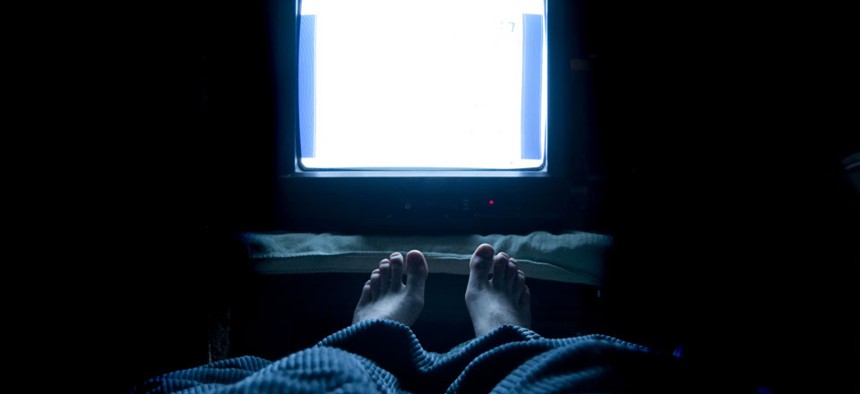
Vlue/Shutterstock.com
Study: Coping Poorly With Stress Means Worse Sleep
Drinking, drugs, and distracting yourself with TV are linked with a higher risk for insomnia. But so is giving up on dealing with your problems.
According to the National Sleep Foundation, half of people who suffer from insomnia blame it on stress and worry. And small wonder. It’s easy to get snarled up in your problems, lying prone in the dark with no distractions. And not sleeping can quickly become its own stressor, further compounding the problem.
But a new study published in Sleep finds that how you cope with that stress could be behind those sleepless nights. Researchers from the Sleep Disorders and Research Center at Henry Ford Hospital in Detroit had just under 3,000 people report how many stressful events they’d experienced in the last year. Possible stressors included deaths in the family, illnesses, financial problems, and going through a divorce. Participants also reported how severe those stressors were to them, how long they lasted, and how deeply they impacted participants’ thoughts—for example, if they thought about the stressful event when they didn’t mean to. Lastly, they reported what behaviors they used to cope with their stress.
The researchers used DSM-IV criteria to assess participants’ insomnia, and analyzed how the duration of the stressors, their intrusion on participants’ thoughts, and coping mechanisms mediated the relationship between stress and insomnia.
Overall, 9.1 percent of study participants experienced insomnia, and it was more prevalent in women. People who experienced more stress, unsurprisingly, were more likely to have trouble sleeping, and this likelihood increased the longer stress was present in their lives. Invasive thoughts about stressors (“cognitive intrusion,” as the researchers call it) also put people at higher risk for insomnia.
This study assessed three different coping mechanisms: using drugs or alcohol, distracting yourself with TV or a movie, or just giving up on trying to deal with the stress. All three were significantly associated with increased insomnia—moving one point up the researchers’ coping scale for substance use increased risk by 5 percent, self-distraction increased risk by 4 percent, and giving up increased risk by 9 percent.
“The substance use result is quite concerning,” the researchers write, “given both the high rates of self-medication among individuals with sleep disturbance as well as the known sleep disruptive effects of substances such as alcohol.”
So substance use and distraction appear to be unhealthy coping mechanisms. But so, according to this study, is doing nothing. Even if watching Netflix isn’t the answer, finding some way to deal with stress could be the key to finally falling asleep.
(Image via Vlue/Shutterstock.com)
NEXT STORY: At USPS, Making Every Mile Count . . . More






